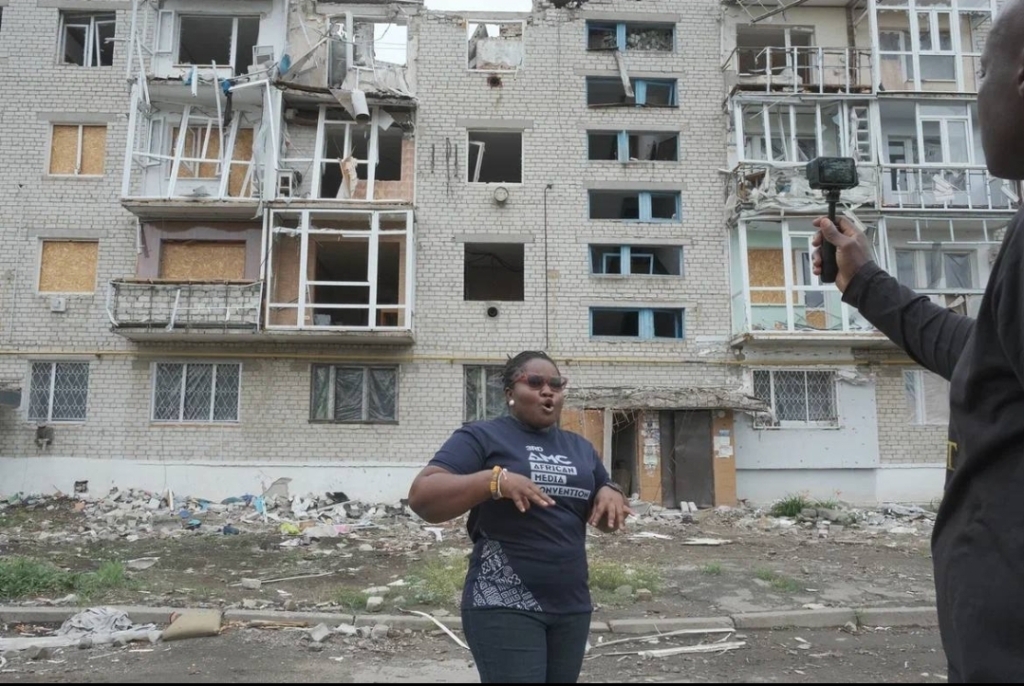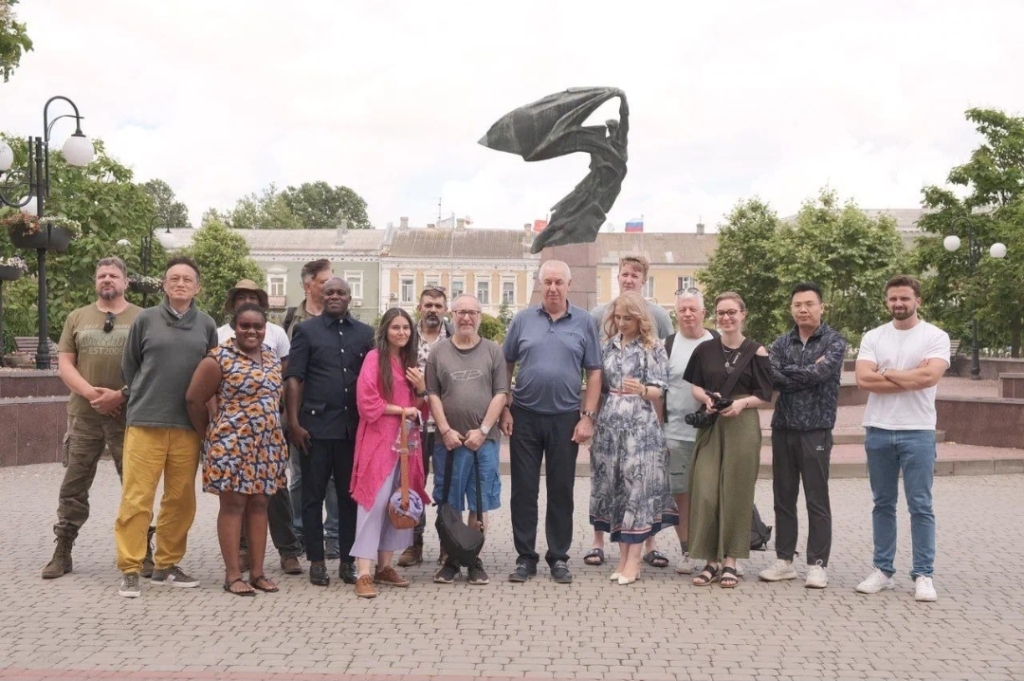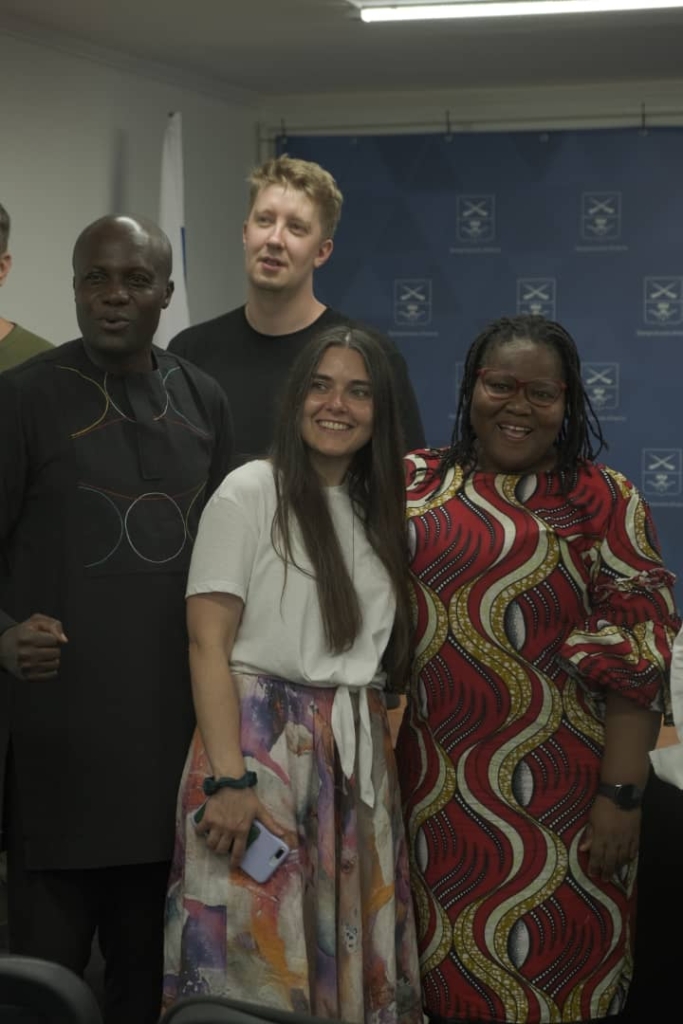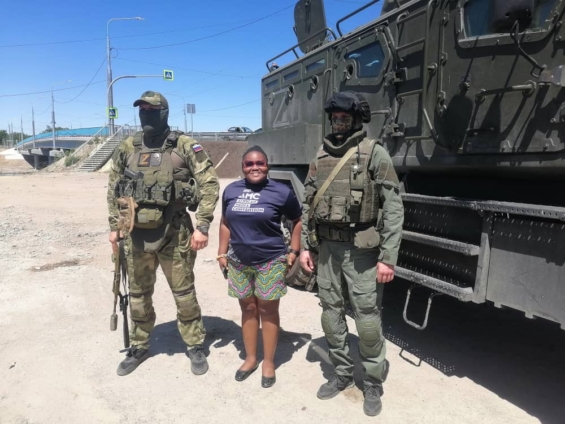In a bid to shed light on the human impact of ongoing conflicts in Russia, a group of journalists, including two African reporters, recently undertook a tour of several conflict-affected areas.
The tour aimed to provide an unfiltered view of the struggles faced by civilians caught in the crossfire of geopolitical tensions.
Russia has been embroiled in a series of conflicts, both within its borders and with neighbouring countries, over the past decade.

These conflicts have stemmed from a mixture of political, ethnic, and territorial disputes. Key regions affected include parts of Eastern Ukraine, the North Caucasus, and more recently, areas in the Arctic and the Far East, where strategic and resource-driven interests have sparked confrontations.
The delegation consisted of journalists from various parts of the world, representing different media outlets. Notably, the group included two African journalists from Mali and Ghana.

Eastern Ukraine
The journalists visited the Donbas region, a flashpoint of the Russia-Ukrainian conflict. They observed the impacts of prolonged warfare on local communities, documenting stories of displacement, loss, and resilience.
They interviewed residents who have lived through artillery shelling and economic hardship, capturing the enduring spirit of those striving to rebuild their lives.

North Caucasus
In the volatile North Caucasus, the group, heavily guarded and protected by the Russian army, police and security agencies explored areas affected by insurgency and counter-insurgency operations.
They met with families of victims of both terrorist attacks and military crackdowns, providing a balanced view of the complex dynamics in the region. Media interviews with local women highlighted the often-overlooked struggles of civilians, particularly in remote villages.
Arctic regions
The journalists also ventured into Russia’s Arctic territories, where rising geopolitical tensions and climate change have exacerbated conflicts.
They documented the lives of indigenous communities facing displacement due to both military activities and environmental degradation. An in-depth report on the exploitation of natural resources in these regions brought to light the often-ignored environmental aspects of the conflict.

Challenges
The tour was not without its challenges. The journalists navigated through heavily militarized zones, dealing with restricted access and surveillance.
Their efforts to report objectively were occasionally hindered by some groups of people.
Despite these obstacles, the team managed to gather significant insights and first-hand accounts, often risking their safety to bring untold stories to the world.
Impact and reactions
The reports and documentaries produced from this tour have started to circulate globally, drawing attention to the humanitarian crises in these conflict zones.
Advocacy groups have praised the journalists for highlighting the plight of civilians, calling for increased international intervention and aid.

Looking forward
The tour has set a precedent for future journalistic endeavours in conflict zones, emphasising the need for diverse and inclusive reporting.
As the world becomes increasingly interconnected, the role of journalists in uncovering the truths of war and conflict remains crucial.

The bravery and dedication of these journalists underscore the importance of their work in fostering global awareness and understanding.
Latest Stories
-
Ghana-Russia Centre to run Russian language courses in Ghana
3 hours -
The Hidden Costs of Hunger: How food insecurity undermines mental and physical health in the U.S.
4 hours -
18plus4NDC marks 3rd anniversary with victory celebration in Accra
7 hours -
CREMA workshop highlights collaborative efforts to sustain Akata Lagoon
7 hours -
2024/25 Ghana League: Heart of Lions remain top with win over Basake Holy Stars
8 hours -
Black Queens: Nora Hauptle shares cryptic WAFCON preparation message amid future uncertainty
8 hours -
Re-declaration of parliamentary results affront to our democracy – Joyce Bawah
8 hours -
GPL 2024/25: Vision FC score late to deny Young Apostles third home win
9 hours -
Enhancing community initiatives for coastal resilience: Insights from Keta Lagoon Complex Ramsar Site Workshop
9 hours -
Family Health University College earns a Presidential Charter
9 hours -
GPL 2024/25: Bibiani GoldStars beat Nsoatreman to keep title race alive
9 hours -
GPL 2024/25 Bechem United keep title hopes alive with narrow win over FC Samartex
9 hours -
2024/25: Dauda Saaka scores as Asante Kotoko beat Dreams FC
9 hours -
M.anifest reflects on galamsey’s devastation 11 years after ‘No Shortcut to Heaven’
10 hours -
We’ll have the last laugh – Sammy Gyamfi slams EC’s “cantata” re-collation
10 hours

